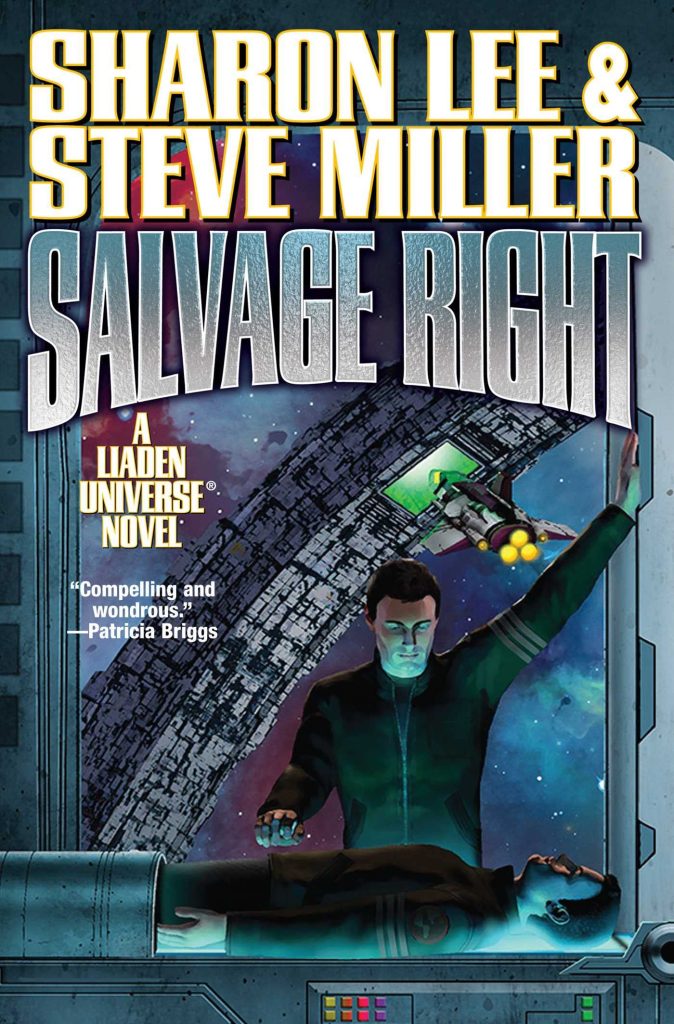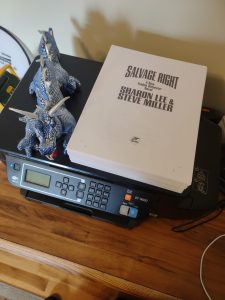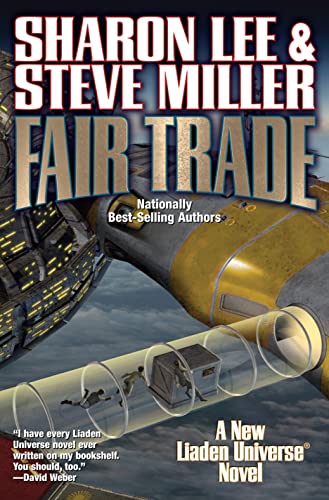Mini-lecture, here. If you’re not interested in the intricacies of self-publishing, you can skip this bit.
So.
Asyouknowbob, Pinbeam Books — the self-publishing arm of Sharon Lee and Steve Miller — has been making paper editions of its Echapbooks available through Amazon. This is because Amazon makes it relatively easy to produce a paper book through their software — BN’s software long ago defeated me — and there is a portion of our readership who Really Really want paper, and this is how we oblige them, and thank them for sticking with us.
So. Amazon has recently refribbed the back room where indie folk get their books set up for sale. And as I was getting the paper edition of Change State ready to go, I encountered a checkbox that said, “Expanded Distribution.” Now, I’m none so sharp as I once was, and I figured that was the box I always clicked (when setting up an ebook), which allowed the book to be sold in the UK, Australia, Germany, &c. So I checked the box.
Turns out that, when you click that box for a paper book, you are allowing Amazon to serve as the distributor of the paper edition, to “other venues,” such as BN, and unnamed others, including “libraries.”
So, that’s a good thing, right? Expanded sales venues = expanded audiences, and all like that?
And that’s — yes. And no.
It will, I hope, come as no surprise to anyone here that Pinbeam Books is a for-profit enterprise. It’s one of several income streams, and how we keep the cats in litter and cat food, and ourselves in frivolous things like medicines and electricity.
Which brings us back to Amazon, believe it or don’t. Paper editions of Pinbeam Books’ chapbooks retail for $10. This is also what SRM Publisher — Pinbeam’s predecessor — retailed its paper chapbooks for. Before anyone says it — yeah, that’s kind of expensive. It’s always been kind of expensive, but there are reasons for that price-point, and here they are:
ONE: You have to pay the printer. Pro Tip: Always pay the printer.
TWO: When you’re publishing paper books, you want vendors who are not you to sell your book. Bookstores are *also* for-profit endeavors, so you can’t sell them a $10 retail book for $10. You sell them the $10 retail book for $6, and the bookstore makes $4 profit per sale, less their cost of doing business.
However, the publisher, being for-profit, as it is, cannot lose money on the transaction — but they take a lesser profit per each, because typically bookstores buy in bulk.
THREE: If you place your books with a distributor, say Ingram, the distributor — being a for-profit enterprise — also takes a percentage of profits received. SRM Publisher did direct mail-order and was not in any way big enough to interest a distributor.
Everybody with me so far? Yeah, you in the back, I see your eyes drifting shut. You don’t have to stick with this, honest.
All righty, then. Amazon. In this Brave New World, Amazon is printer, vendor, and distributor. Being a for-profit enterprise, as it oh-so-definitely is, Amazon takes a percentage of each sale — as printer, as vendor, and as distributor.
For ebooks, this means that Amazon “gives” Pinbeam Books 70% of cover for each sale. Sweet, right?
For paper books, Amazon “gives” Pinbeam Books 60% of cover, and, since Amazon is also the printer, it subtracts its printing costs from that 60%. Which leaves Pinbeam Books — a for-profit enterprise — with a profit per each that is comparable to the per-each profit on an Echapbook.
But wait, there’s more!
If you then click the Expand Distribution ticky-box, you make Amazon the distributor of your paper book — and we have already decided that Amazon, being a for-profit enterprise, will not do this for free. The price Amazon charges to get Pinbeam Books paper editions to “other” venues, drops Pinbeam Books’ profit per each to, a very low level. Speaking as a principle in a for-profit enterprise, I’d say, an unacceptably low level. Pinbeam Books would have to sell a Whole Freaking LOT of paper books to balance out the distributor’s fee, and return an acceptable profit.
So, what Pinbeam Books — aka Sharon Lee and Steve Miller — needs to figure out is if it’s ever again worth going for Amazon’s “Expanded Distribution.” This time was a mistake, and we’ll let it stand. And there are those people who refuse to buy from Amazon, who might pick up a paper copy through BN, only —
They’d still be giving Amazon money — even more money — by doing so.
And so.
End of lecture.


